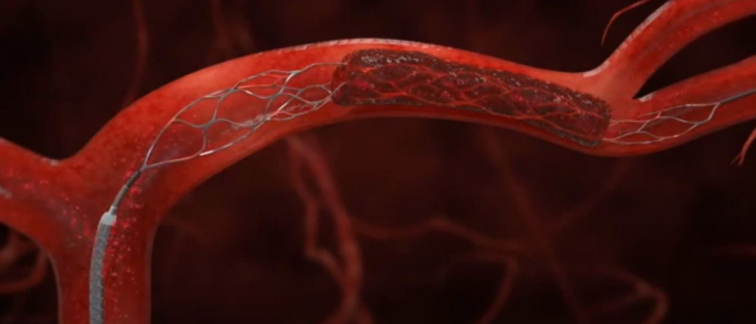A stroke - in which a clot suddenly closes off a blood vessel in the brain - often has serious consequences. Since a few years the prognosis for it has improved considerably. This is due to a new treatment in which doctors remove the blood clot that causes the infarction using a catheter (endovascular treatment). Traditionally, patients are given a drug to dissolve the blood clot (alteplase) prior to this treatment. However, some patients experience bleeding complications, in which case such a clot-dissolving drug can be a disadvantage. The research question was therefore whether alteplase, in addition to the catheter treatment, has added value. The research now shows that there is no clear difference between treatment with or without a clot dissolver before catheterisation of the infarct.
Risk of death
The study, which was made possible by the Dutch Heart Foundation, involved 539 patients with occlusion of one of the large arteries in the brain. About half of the patients were treated with alteplase before the catheterisation, the other half did not receive it. There was no clear difference in the results of the two treatment strategies. The success rate of the blood clot removal with a catheter was similar in the two groups. Furthermore, there was no difference in the risk of death or intracerebral hemorrhage.
This result leaves room for doctors not to always use a clot dissolver. In which cases a clot dissolver is desirable and in which cases it is not, is now being investigated further. The results of the study will be combined with several comparable studies worldwide. This will provide researchers and doctors with even more guidance as to whether or not to omit clot dissolvers.
Time is brain
Professor Yvo Roos, neurologist and one of the project leaders: "We often say: time is brain. The faster we act in the event of a stroke, the less damage there will be to the brain. This research is another step towards even better treatment of patients."
More information
The CONTRAST consortium is a partnership between various university medical centres, Dutch hospitals and partners from the industry. Funding for this project comes from the Dutch Heart Foundation and the Dutch Brain Foundation.
Read the publication in the New England Journal of Medicine here.
An animation about the study can be found here.

